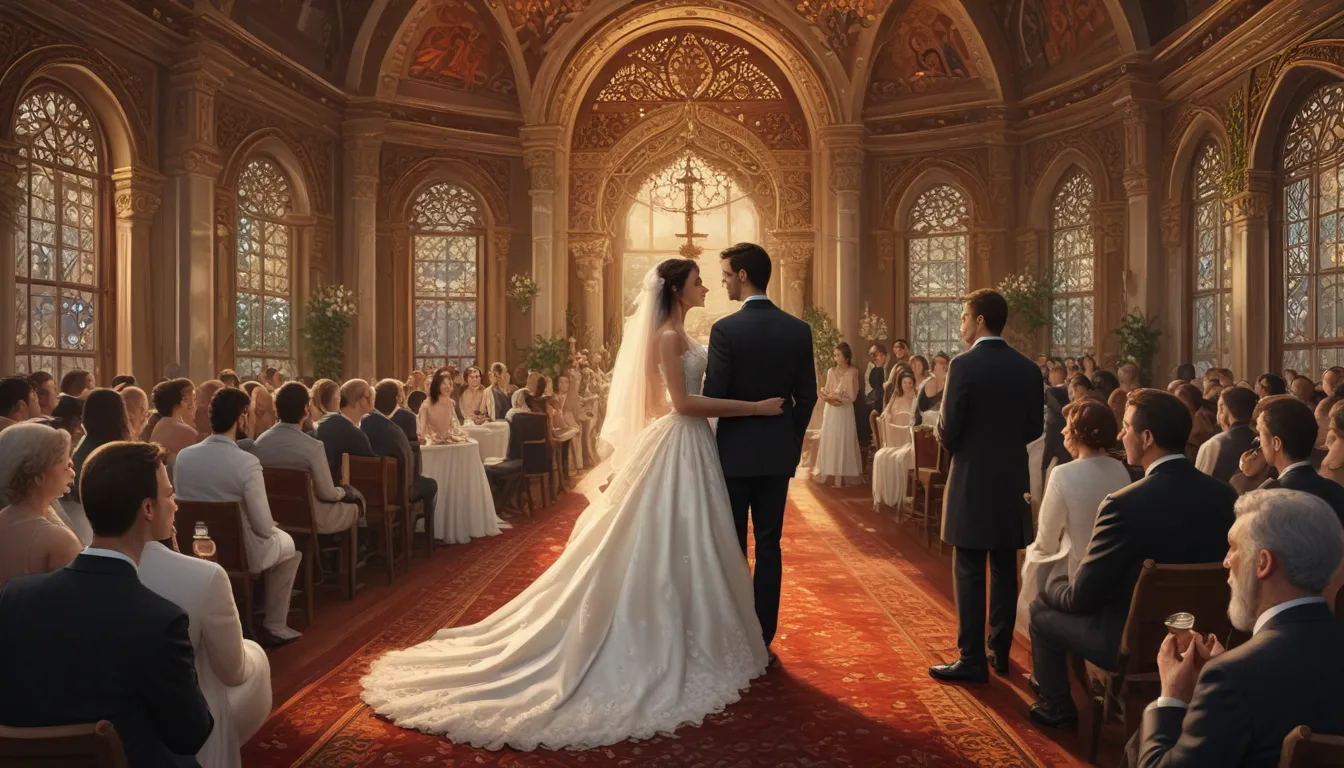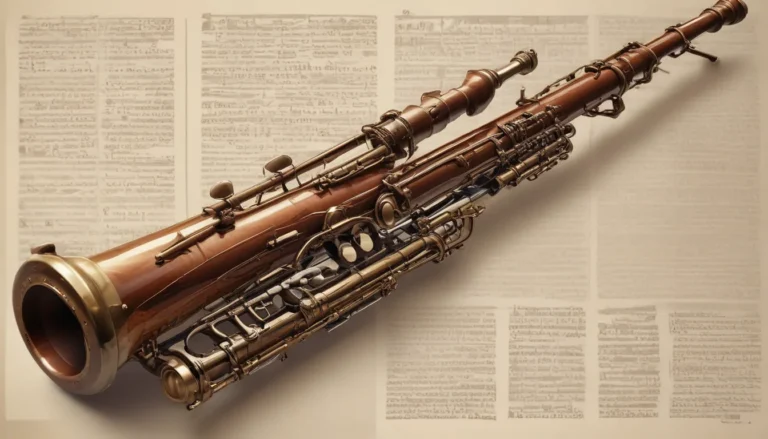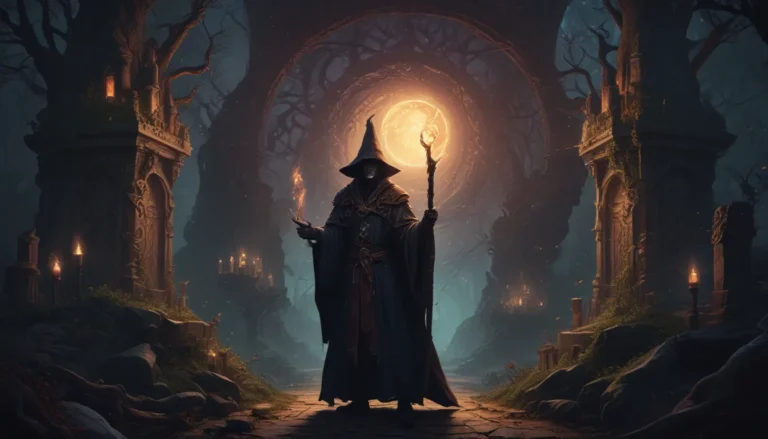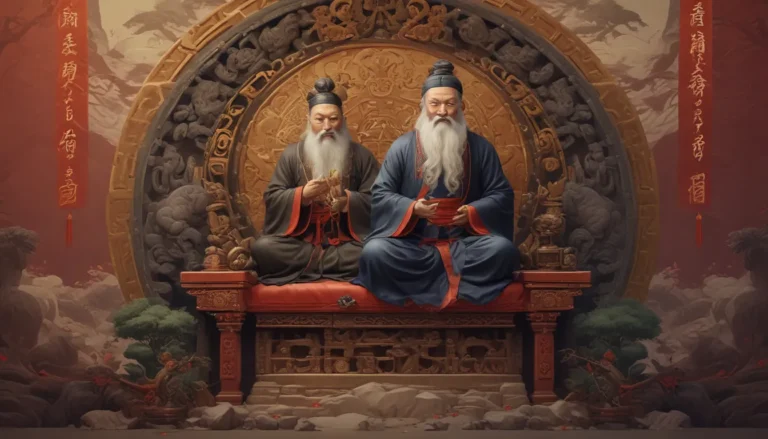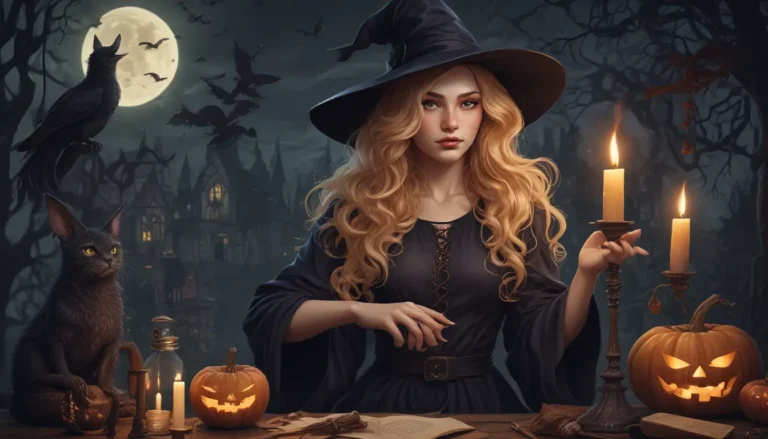The images in our articles may not match the content exactly. They are used to grab your attention, not to show the exact details in the text. The images complement the text but do not replace it.
When it comes to celebrating love and tradition, Jewish weddings hold a special place in the hearts of many. From the breaking of the glass to the colorful dance of the Hora, these ceremonies are a beautiful tapestry of ancient customs and modern adaptations. If you’ve ever been curious about what makes Jewish weddings unique or if you’re planning your own, delving into these rich traditions and cultural values can provide valuable insights. Let’s embark on a journey to unravel the fascinating world of Jewish marriage together!
Unpacking Jewish Marriage Traditions
Jewish weddings, also known as Kiddushin, are steeped in traditions that date back thousands of years. These rituals not only symbolize the union of two individuals but also reflect their commitment to faith and heritage. Let’s dive into some key components of Jewish marriage customs:
- Ketubah: The Ketubah, a marriage contract, outlines the husband’s responsibilities to his wife and ensures her rights and welfare.
- Chuppah: The wedding canopy symbolizes the couple’s new home and hospitality to guests, harkening back to the tent of Abraham.
- Breaking the Glass: A poignant moment where the groom breaks a glass, serving as a reminder of past sorrows even in times of joy.
Embracing Family and Community
Family and community take center stage in Jewish weddings, underscoring the importance of collective support and celebration. Here are some ways in which family and community are integral to these ceremonies:
- Aufruf: A pre-wedding event where the groom is called up to the Torah, celebrating the upcoming union.
- Shabbat Kallah: A special Sabbath for the bride, where female relatives offer blessings and advice.
- Active Participation: Parents often escort the couple to the chuppah, emphasizing the communal nature of the celebration.
Delving into Unique Jewish Wedding Customs
Jewish weddings boast a myriad of unique customs that infuse joy and significance into the festivities. Here are a few standout practices that make Jewish weddings truly special:
- Yichud: A moment of seclusion for the newlyweds symbolizing their new status as a married couple.
- Mazel Tov: An exclamation of congratulations and good luck typically uttered after the glass is broken.
- Seven Blessings: Recited during the ceremony, these blessings intertwine the couple’s joy with the creation of the world and Jewish history.
Celebrating Love and Joy
While Jewish weddings hold deep cultural and historical significance, they are also embodiments of joy, music, and feasting. Let’s explore the celebratory aspects of Jewish nuptials:
- Hora Dance: An iconic Jewish wedding dance where guests form a circle and lift the newlyweds on chairs in the center.
- Klezmer Music: Traditional Eastern European Jewish music that infuses liveliness into the celebration.
- Feasting: From adhering to kosher dietary laws to sharing traditional dishes, food plays a central role in Jewish wedding festivities.
Merging Tradition with Modernity
In today’s evolving landscape, modern Jewish weddings seamlessly blend traditional elements with contemporary touches. Here’s how couples are incorporating modern adaptations:
- Personalized Ketubah: Customized designs and texts in the Ketubah that reflect the couple’s unique relationship.
- Gender Equality: More egalitarian practices such as both partners breaking a glass or reciting vows.
- Technology: The rise of live streaming allows virtual participation for those unable to attend in person.
Nurturing Community Support and Connections
Community support is a foundational element of Jewish weddings, fostering a sense of togetherness and shared values. Here’s how community plays a vital role in these celebrations:
- Active Participation: Guests actively engage in singing and dancing to commemorate the couple’s union.
- Tzedakah: Acts of charity incorporated into weddings highlight the value of giving back to the community.
Infusing Spirituality into Unions
Jewish marriages transcend mere legal contracts, embodying profound spiritual connections to faith and heritage. Here are some spiritual dimensions of Jewish weddings:
- Mikveh: Some brides visit a mikveh, signifying spiritual purification and renewal before the wedding.
- Fasting: Couples may fast on their wedding day, mirroring Yom Kippur’s solemnity and introspection.
The Heartfelt Joy of Jewish Weddings
At the core of Jewish weddings lies a celebration of love, joy, and community spirit. Let’s explore the elements that make Jewish weddings truly joyous occasions:
- Simcha: The Hebrew word for joy encapsulates the essence of Jewish weddings, emphasizing happiness and communal celebration.
- Music and Dance: From klezmer tunes to lively hora dances, music and dance infuse festivity into the atmosphere.
- Feasting: The wedding feast, with its traditional dishes and shared sweets, marks a culmination of joy and unity among guests.
Upholding Tradition for Generations to Come
Jewish weddings serve as a bridge between the past, present, and future, honoring ancient customs while embracing contemporary lives. Here’s how Jewish weddings ensure the continuity of tradition:
- Passing Down Customs: Incorporating elements from parents’ or grandparents’ weddings maintains a tangible link to ancestry.
- Adaptation and Inclusion: Adapting rituals to reflect diverse values and inclusivity while upholding tradition.
- Community and Connection: Strengthening bonds of community, faith, and family to pave the way for a thriving future together.
Reflecting on the Beauty of Jewish Matrimony
Jewish weddings weave a tapestry of history, tradition, and love, embodying a profound celebration of cultural heritage and shared values. As couples embark on their journey under the Chuppah, they not only commit to each other but also to a life enriched by faith, tradition, and the duty of passing down these treasures to future generations. Unveiling the essence of Jewish culture through these rich traditions is a testament to the diverse and beautiful tapestry of wedding customs around the world.
Frequently Asked Questions
What makes Jewish weddings unique?
Jewish weddings stand out for their blend of ancient traditions and religious customs that symbolize deep commitments and community support.
How long do Jewish wedding ceremonies usually last?
While the ceremony itself is brief, the festivities can extend for several hours, offering a full day of joy and tradition.
Can anyone have a Jewish wedding?
Traditional Jewish weddings require both members of the couple to be Jewish, but attitudes vary on interfaith marriages within different Jewish communities.
What’s the significance of the chuppah in Jewish weddings?
The chuppah represents the couple’s future home and symbolizes hospitality and community support.
Why do couples break a glass at Jewish weddings?
Breaking the glass symbolizes past sorrows even amidst joy, honoring history and initiating celebrations.
Are there specific attire requirements at Jewish weddings?
While there’s no strict dress code, modesty and respect are often emphasized, with some couples requesting traditional head coverings.
What role does food play in Jewish weddings?
Food embodies joy, community, and tradition at Jewish weddings, often reflecting the couple’s heritage and bringing warmth to the celebration.
